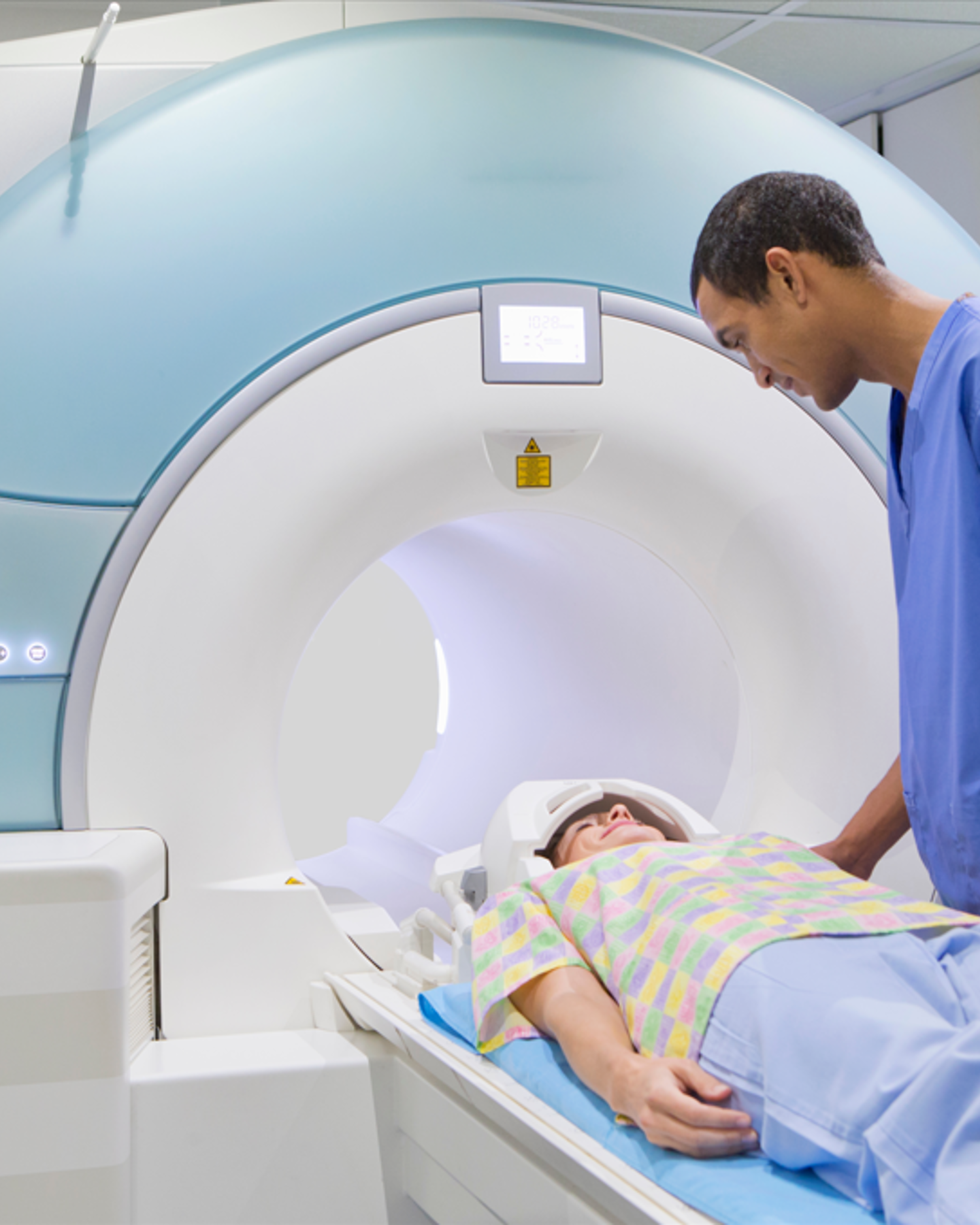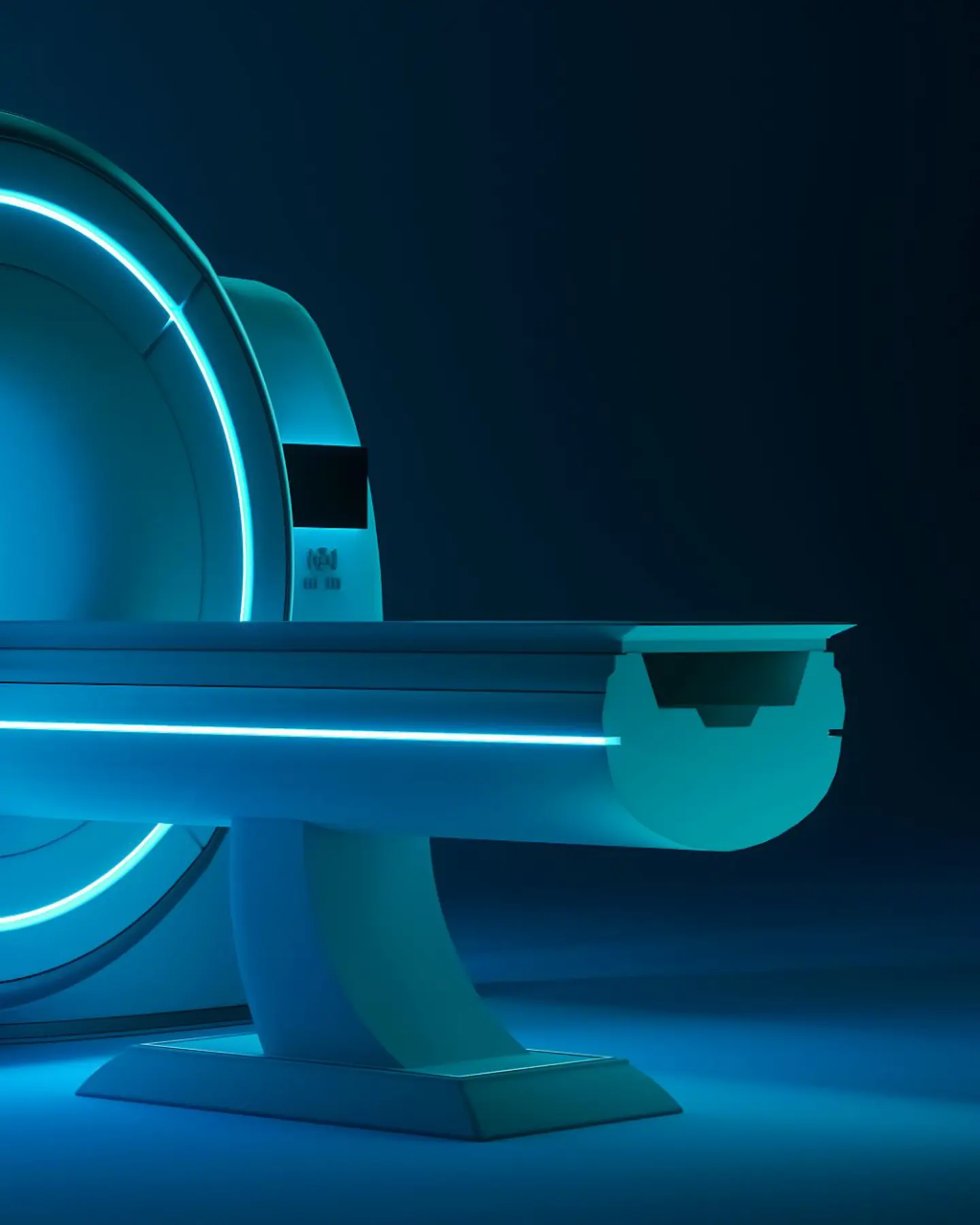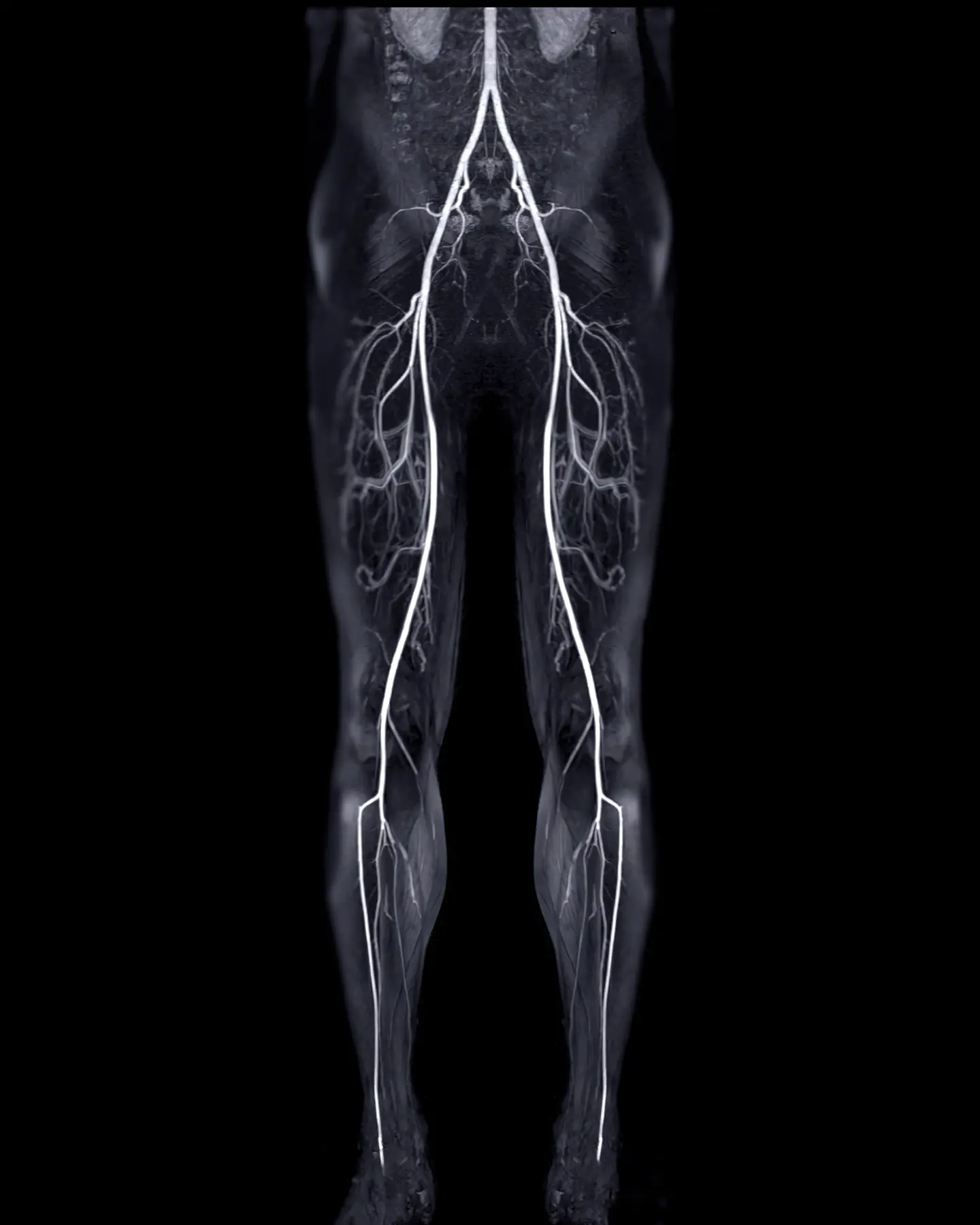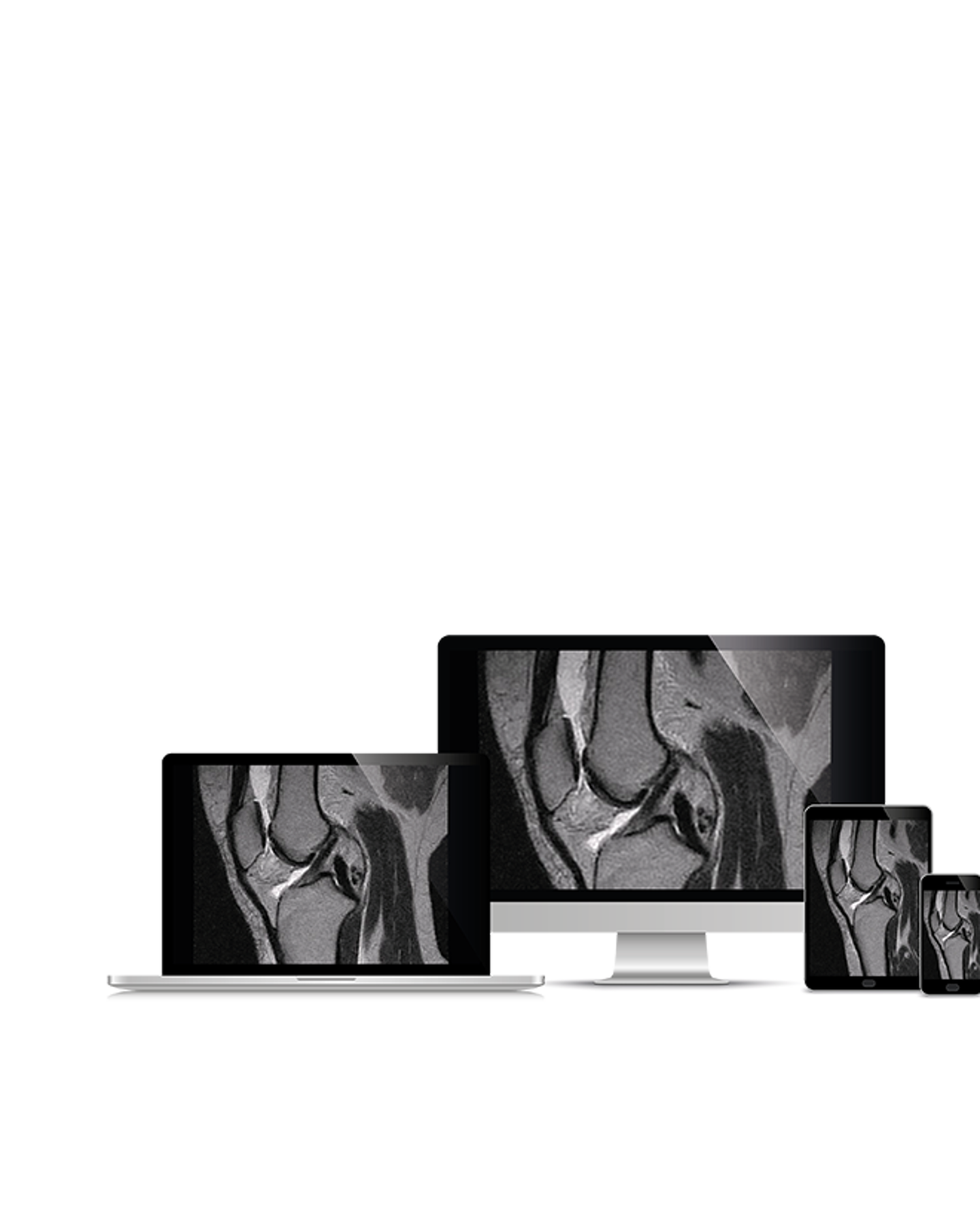

An MRA (Magnetic Resonance Angiography) scan is a non-invasive diagnostic imaging technique used to capture detailed images of the arteries inside the body.
Magnetic Resonance Angiography (MRA)
To book a magnetic resonance angiography MRI scan direct in Liverpool or Manchester, complete the enquiry form
Make an enquiryWhy choose us for your MRI Scan?
We’re the UK’s leading independent provider of diagnostic services, operating MRI scanning facilities at convenient locations across the country.
-
Skip the wait
Get fast access to MRI scans, with reduced waiting times and swift access.
-
Appointments to suit you
You have the flexibility to choose the location and timing of your scan, to suit your busy lifestyle.
-
Refer yourself
No need for a GP referral
-
Affordable prices
Amongst the most competitive in the UK private health sector, with scans starting at £249. Our prices are all-inclusive. The price you see is the price you pay – there are no hidden costs.
-
Convenient locations
Choose from scanning centres in Manchester or Liverpool.
-
Get your results within days, not months
Digital report and scan images included
What is a Carotid Magnetic Resonance Angiography MRI Scan?
A Carotid MRA scan uses contrast dye and magnets to assess the carotid arteries, the main vessels that supply oxygenated blood to the brain. This scan is essential for detecting plaque build-up or blood clots that may reduce blood flow to the brain, increasing the risk of stroke or a Transient Ischemic Attack (TIA), also known as a mini stroke. Early detection of carotid artery issues can help prevent life-threatening conditions.
What can a Carotid MRA detect?
- Carotid Stenosis: Narrowing of the carotid arteries due to plaque build-up, which may cause clots that travel to the brain, increasing the risk of a stroke.
- Carotid Dissection: A tear in the layers of the carotid artery wall, a leading cause of stroke in younger adults.
- Carotid Aneurysm: An abnormal bulging in the carotid artery walls that can lead to dangerous internal bleeding or blood clots if left untreated.
Why would I need a Carotid MRA?
A Carotid MRA is recommended to:
- Identify plaque build-up or clots in the carotid arteries that could lead to a stroke or TIA.
- Detect aneurysms in the carotid arteries that may require treatment.
- Aid in surgical planning for carotid artery conditions.

What is a Renal Magnetic Angiography Scan? (MRA)
A Renal MRA scan focuses on the renal arteries, which supply blood to the kidneys. Using magnetic fields and contrast dye, this scan detects narrowing, blockages, and aneurysms in the renal arteries. Renal MRA is essential for assessing blood flow and detecting conditions that may impair kidney function.
What can a Renal MRA detect?
- Renal Artery Stenosis: A narrowing of the arteries supplying blood to the kidneys, often leading to high blood pressure and kidney damage.
- Aneurysms: Abnormal bulges in the blood vessels that could rupture.
- Blockages: Obstructions that may affect kidney function.
- Tumours: Both benign and malignant growths that impact the blood vessels.
- Vascular Malformations: Abnormal connections between blood vessels.
Why would I need a Renal MRA?
Doctors recommend a Renal MRA to:
- Detect Renal Artery Stenosis or blockages that may lead to hypertension or kidney issues.
- Evaluate blood flow to the kidneys and kidney function.
- Identify aneurysms in the renal arteries that require treatment.
- Plan surgical procedures, such as kidney transplants or cancer surgeries, using detailed images of the renal blood vessels.

What is a Peripheral MRA Scan?
A Peripheral MRA scan examines the peripheral arteries, typically in the legs, to assess blood flow and detect narrowing or blockages caused by Peripheral Artery Disease (PAD). This scan is crucial for diagnosing conditions that can restrict blood flow to the lower limbs.
What can a Peripheral MRA detect?
- Peripheral Artery Stenosis: Narrowing of the arteries in the legs due to plaque build-up.
- Atherosclerosis: Hardening and narrowing of the arteries caused by plaque accumulation.
- Aneurysms: Bulges in the artery walls that may rupture.
- Blood Clots: Obstructions that impede blood flow.
- Arteriovenous Malformations: Abnormal connections between veins and arteries.
Why would I need a Peripheral MRA?
A Peripheral MRA scan is typically recommended for:
- Diagnosing Peripheral Arterial Disease (PAD) if you experience symptoms like leg pain, numbness, or weakness.
- Detecting aneurysms in the arteries of the legs.
- Identifying blood clots that may obstruct blood flow.
- Planning surgeries, such as revascularization, to restore proper blood flow in the legs.

Your health, your choice, your scan
Private MRI Prices from just £249







| Label and description | Value |
|---|---|
|
Fast Track MRI
Scan within 7 days
|
£380
|
|
Standard MRI
Scan from 7 days
|
£360
|
|
Off-Peak MRI Scan
Limited fixed scan times
|
£249
|
|
Contrast
If you require an MRI contrast dye, there is an additional cost.
|
£125
|
View, share and download your images online
Online Imaging
With our Patient Image Portal, you can:
- View, share and download your images on your laptop, tablet or mobile.
- Instantly share your images with a medical professional.
- Have full access to your images for one year.
- Eliminate the need for CDs.

FAQs
Your questions answered
If you’re about to begin a healthcare journey including MRI scans, you’re likely to have a few questions. We’ve tried to answer the most common queries here - but if you don’t find what you’re looking for, you can always ask one of our friendly Patient Care Advisors.
Can you help me understand my results?
If you’d like to discuss your scan results with one of our GPs, you can arrange a consultation. There’s a 20% discount on consultation fees if you book when you arrange your scan.
Can I refer myself?
We accept self-referral in most cases. Self-referral allows you to take control of your own health with direct access to our own specialist diagnostic services. We also offer a GP consultation service to provide you with a referral if you need one.
What if I need an open or upright scanner?
For some patients - including those with restricted mobility, anxiety and people with claustrophobia - the standard ‘tunnel-style’ MRI scanner may be challenging. An alternative is the open and upright scanner, which can be more comfortable for some patients. This provides comfort and reassurance, and offers a variety of scanning positions including sitting, standing, leaning, and lying.
What body part can I have scanned?
We offer a range of MRI scans to assist you in obtaining the diagnosis you require.
How long does an MRI scan take?
Most scans take between 20 and 40 minutes, depending on the size of the area we’re investigating. Please arrive 15 minutes before your scheduled appointment.
How much will an MRI scan cost?
Our MRI scans start from £249. The fee includes a full written report within 3 working days, and access to your images online to view, download or share with a medical professional such as your GP. When you book online, you’ll have the option to spread the cost over three months, interest free.
How soon can I have my MRI scan?
With MRI facilities across the UK, we can offer scans at short notice. We work evenings, weekends and bank holidays.




